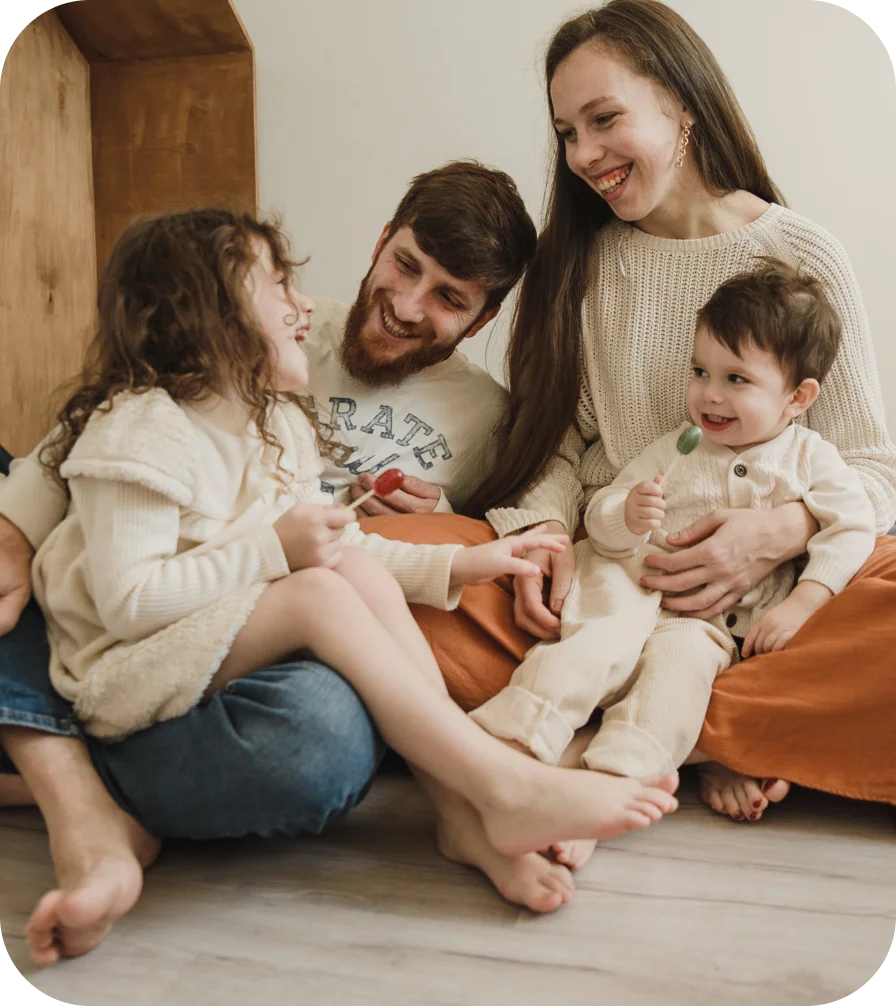
Home / Our Therapies / Speech Therapy Sydney / Paediatric Speech Therapy / Hanen Programs

The Hanen Program focuses on naturalistic, interaction-based approaches to enhance language development in children, particularly those with language delays. It empowers parents to be active participants in their child’s language improvement. At LEAP Centre, our therapists are trained in the Hanen approach, providing supportive guidance for effective communication development.
Key Features:
For information on our Hanen therapy services, contact LEAP Centre
At LEAP Centre, we are proud to offer Hanen Programs as part of our comprehensive range of speech and language services. Hanen Programs are evidence-based, family-centered intervention programs designed to empower parents and caregivers to support their child’s language development and communication skills within everyday interactions. Developed by The Hanen Centre, these programs are grounded in research and focus on enhancing the quality of communication between children and their caregivers.
Hanen Programs are based on the belief that parents and caregivers play a critical role in their child’s language development. These programs provide practical strategies and support to help parents and caregivers create language-rich environments and promote language learning opportunities in everyday routines and activities. Hanen Programs are suitable for children with a range of communication difficulties, including late talkers, language delays, and language disorders.
At LEAP Centre, our certified Hanen facilitators deliver Hanen Programs in a supportive and collaborative environment. We offer a variety of Hanen Programs tailored to meet the specific needs and goals of families and their children. Our programs typically involve a series of group sessions where parents and caregivers learn practical strategies and techniques for fostering language development in their child.
Responsive Interaction Strategies
Hanen Programs emphasise the importance of responsive interaction between caregivers and children. Caregivers learn how to tune into their child’s cues, interests, and communication attempts and respond in a supportive and engaging manner. By following the child’s lead and providing meaningful responses, caregivers can create rich language-learning opportunities.
Language Modeling Techniques
Caregivers are taught how to model and expand their child’s language during everyday activities and conversations. This involves providing rich and varied language input, using simplified language structures, and introducing new vocabulary in context. By modeling appropriate language, caregivers help their child develop comprehension and expressive language skills.
Targeted Intervention Strategies
Hanen Programs provide caregivers with specific strategies for targeting language goals and addressing their child’s individual communication needs. Caregivers learn how to incorporate language-building activities into daily routines, such as book reading, playtime, and mealtime, to support their child’s language development effectively.
Support for Language-Enriched Environments
Hanen Programs focus on creating language-enriched environments within the home and community settings. Caregivers are encouraged to create opportunities for language learning in naturalistic contexts, such as during daily routines, outings, and interactions with peers. By immersing their child in a language-rich environment, caregivers can facilitate optimal language development.
Hanen Programs are suitable for parents and caregivers of children with a variety of communication difficulties, including:
Hanen Programs are designed to equip caregivers with the knowledge, skills, and confidence to support their child’s communication development effectively.
The impact of Hanen Programs at LEAP Centre is significant. Parents and caregivers who participate in Hanen Programs often report improved communication skills in their child, enhanced parent-child interactions, and increased confidence in their ability to support their child’s language development. Children benefit from a supportive and language-rich environment that fosters meaningful communication and social engagement.
Choosing LEAP Centre for Hanen Programs means choosing a supportive and empowering environment where families can learn and grow together. Our certified Hanen facilitators are dedicated to providing high-quality, evidence-based intervention that yields tangible results. We prioritise family-centered care, collaboration, and ongoing support to ensure the best possible outcomes for children and their families.
In conclusion, Hanen Programs are valuable resources for families seeking to support their child’s language development and communication skills. At LEAP Centre, we are committed to providing comprehensive Hanen Programs that empower families to create language-rich environments and foster meaningful communication with their children. If you or someone you know could benefit from Hanen Programs, we invite you to contact us and take the first step towards enhancing your child’s communication journey.
We offer a comprehensive range of therapy services, including occupational therapy, speech therapy, and physiotherapy. Each service is tailored to meet the unique needs of our clients, ranging from developmental therapies for children to rehabilitation and support for adults. We also offer programs such as group sessions, individual sessions, and intensive therapy blocks.
If you or your family member is facing challenges with speech, mobility, daily activities, or other areas of physical and cognitive function, therapy might be beneficial. We recommend scheduling a consultation with our specialists for a professional assessment and personalised recommendations. Please submit your enquiry form to book the consultation.
Our clinic provides services for all age groups. We have specialised programs for children, adolescents, adults, and the elderly, ensuring age-appropriate and effective therapy for every client.
Therapy sessions are scheduled based on the individual needs and availability of our clients. Each session typically consists of 45 minutes of direct therapy followed by client/family feedback and therapist documentation/planning.
Our therapists are highly qualified and licensed professionals. They hold degrees in their respective fields and have undergone extensive training and certification. Continuous education is a priority for our team, ensuring we stay updated with the latest therapy techniques and research.
Yes, we actively collaborate with schools, physicians, and other healthcare providers to ensure a comprehensive and coordinated approach to our clients’ care. This multidisciplinary collaboration is essential for holistic treatment planning and effective outcomes. Contact us to collaborate with us!
Our approach is client-centered, evidence-based, and holistic. We focus on understanding each client’s unique needs and goals, and we tailor our therapy plans accordingly. We emphasise a collaborative approach involving the client, their family, and other professionals as needed.
We accept NDIS funding, private health, medicare, and private pay. For all NDIS self-managed or private paying clients, payment is required on the day of your session. Our administrative team can assist you in understanding your benefits and navigating the billing process. Give us a call or submit an enquiry form to find out more!
Yes we do! In addition to clinic-based sessions, we also offer therapy in the home, daycare settings, or at schools. Sessions outside of the clinic incur a travel fee consistent with the NDIS travel rate guide. Give us a call or submit an enquiry form to find out more!
We welcome and value your feedback. You can provide feedback directly to your therapist, through our reception, or by emailing info@leaptherapies.com.au. We are committed to continuous improvement and take your insights seriously.
Absolutely. We understand the importance of a good therapist-client match and will facilitate a change if needed to ensure the best therapeutic experience and outcome.
Getting started is easy. Simply contact us via phone, email, or our website to schedule an initial consultation. During this session, we will discuss your needs and create a personalised therapy plan.

"*" indicates required fields
Our dedicated team provides holistic occupational therapy, speech therapy, and physiotherapy, tailored to meet the unique needs of each individual.